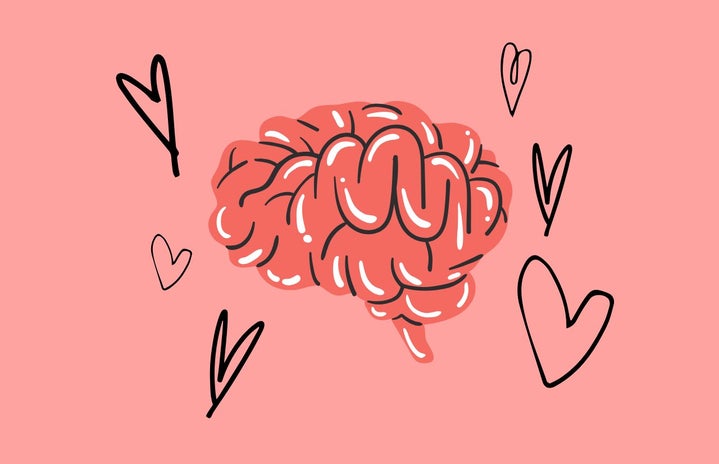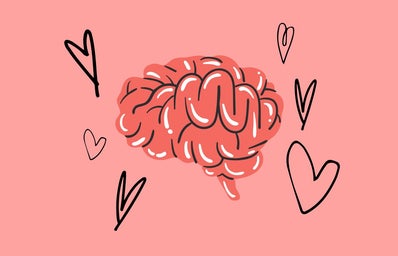Heartbreak comes in many different forms. We all perceive and deal with it differently. Some feel nausea, chest pains, loss of appetite, or maybe even a sudden increase in appetite. To help heal, common tactics include listening to your favorite songs and limiting your usage on social medias. You may reach out to family and friends, where you’ll hear the same advice about time healing all and focusing on yourself—all unfortunately easier said than done. You might wake up at 3:00 AM, hoping that it was all just a bad dream, and start crying when you realize it wasn’t. While every day may be an emotional rollercoaster, there is one thing that is for sure: a broken heart is not a condition that can be fixed overnight. It’s not something that can be fixed in a matter of days. It is unfortunately an undefined amount of time that varies from person to person.
What is most interesting about heartbreak is the fact that we often try to discredit the emotional and even physical pain we feel from it. We might try to ignore the pain, instead of addressing it directly. Heartbreak is a vulnerable period one’s life, thus it is easy to jump to the conclusion that one is weak from those emotions. This is obviously a false conclusion about anybody going through a vulnerable time in their lives, but in the moment, it feels a hell of a lot better to push away any sort of emotions pertaining to the situation. However, these emotions will crawl behind you, waiting for the right moment to grab on—and when they do, they hold on tight.
It is for some reason during heartbreak, a painful time where we should be kind to ourselves, that we decide to be the cruelest to ourselves. Looking at old photos, reading old messages, letting our altered nostalgia get the best of us, and toxically blaming ourselves, leads to nothing but more tears, pain, and anxiety. The only person who can control these factors for pain is ourselves.
We know what this does to us, yet we do it anyway. We wonder what could have been. We over analyze every move we made until the memories melt together and don’t quite make sense anymore. We wish we received a genuine apology, and not one of those half-assed “sorry IF I hurt you” ones. We continue to self-deprecate and allow tiny moments to dictate our entire day. We compare ourselves to others, wondering if we were ever good enough. We end up hurting ourselves more than the person who hurt us in the first place.
At this point, the true enemy is not the person who hurt you, but yourself. At this point, you are responsible for picking yourself back up and controlling the damage. It can’t be done by your friends, it can’t be expected from the person who hurt you—only you. We hear every day about “loving yourself”—but what does it truly mean?
The concepts of loving yourself and self-care has become muddled with different definitions. Sometimes it’s more than just a face mask and a nice break from studying. It’s more than just appreciating your personality and physical appearance (although those are important facets as well). It’s about actions. It’s about doing things for yourself to ensure your own happiness. It may include the unpleasant realizations of where you fall short and what you need to work on as a person. Part of that may be taking responsibility for your own actions—maybe you’ll have to make some apologies too. Loving one’s self is an ambiguous definition for every person. It takes serious reflection and self-discovery to truly understand yourself and how you function, so you can better tailor your life for yourself.
Of course, as mentioned earlier, this is all easier said than done. You won’t magically overnight understand how to treat yourself. There will be days where you think you’ve finally got it, and days where you may have to start over. Just like a relationship with another person, it takes a little bit of patience and lots of time. Make the relationship with yourself count, because it is the only one that will last forever. With time, you won’t remember the restless nights. You won’t hear a certain song and feel melancholy. You won’t remember the reason you were heartbroken. Instead, you’ll reclaim that song and blast it in the car while you’re driving alone. You’ll surround yourself with people who care about your wellbeing. You’ll set up some goals and slowly, but surely, achieve them. You’ll love yourself more than anyone else can.
You’ll be happy.


